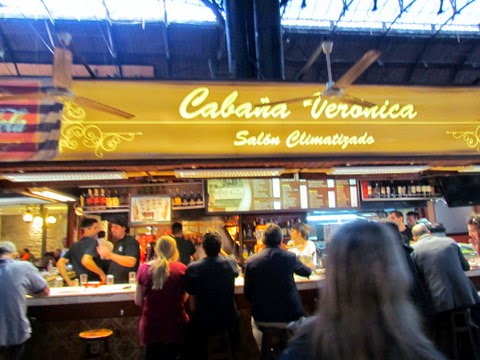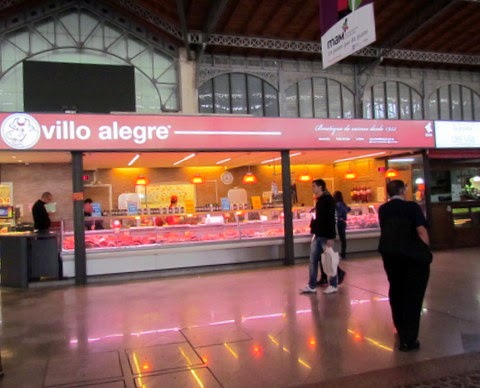We spent
most of the day transferring from Chile to Uruguay. Our flight over the snow capped Andes was
smooth and uneventful. We were met at the airport by Pilar, our Uruguayan
guide. She told us a few things about Uruguay and Montevideo on our ride to the
hotel.
Slightly
smaller than North Dakota, Uruguay is the second smallest country in South
America. It is boxed into the eastern
coast of South America by Brazil to the north and Argentina to the west. To the
south is the wide estuary (117 miles wide) of the Rio de la Plata, while the
Atlantic Ocean washes its eastern shores.
So, we have gone from the Pacific Coast to the Atlantic Coast in a very
short period of time.
April 15
This morning we toured the city of Montevideo.
Since our
hotel, Radisson Montevideo Victoria Plaza
Hotel, is located on the central Plaza Independencia, we began with a
walking tour by simply crossing the street. This is the most important plaza in
Montevideo , and it is located between the Old City and downtown. At one end is the Gateway of the Citadel, one of
the few remaining parts of the wall that surrounded the oldest part of the city.
The first
building pointed out to us was the Palacio Salvo. The original
specifications describe a lighthouse at the top of the building, which was
replaced by a set of antennas. The
building was originally intended to be a hotel, but this plan didn't work out,
and it has since been occupied by a mixture of offices and private residences. For
decades it was the tallest building in South America.
Another
important building on this plaza is the opera house, Teatro Solis. It is Uruguay’s oldest theatre. It
was built in 1856 and went through an eight year reconstruction beginning in
1998.
We then
strolled down to the Ciudad Vieja (Old Town) which retains its atmosphere of
bygone days with old buildings, cobblestone streets and lazy plazas. This pedestrian street shows a homeless
persons sleeping on a bench, one of the few I have seen on this entire trip.
This led us
to Plaza Constitución (Constitution Square), also known as Plaza
Matriz, the oldest plaza in Montevideo.
This day it was full of vendors and people enjoying their families.
One of the
most vibrant places in the Cuidad Vieja is the Marcado del Puerto. Inside the Market’s ornate building (it was
once a train station) market stalls have been converted into parrillas (grills)
and seafood restaurants. It is here that
we had a delicious lunch of steak.
Uruguays are voracious meat eaters and the parrillada (beef platter) is
a national standard.
Let me explain. The infusion, called mate in Spanish-speaking countries or chimarrão in south Brazil, is prepared by steeping dry leaves (and twigs) of the mate plant in hot water rather than in boiling water. It is consumed similar to a tea, more traditionally hot, but sometimes cold.
Drinking mate with friends from a shared hollow gourd (also called a guampa, porongo or mate in Spanish, or cabaça or cuia in Portuguese, or zucca in Italian) with a metal straw (a bombilla in Spanish, bomba in Portuguese) is a common social practice in Uruguay, Argentina and southern Brazil among people of all ages.
Yerba mate is most popular in Uruguay, where people are seen walking on the street carrying the "mate" and "termo" in their arms and where you can find hot water stations to refill the "termo" while on the road. In Argentina, 11 lb. of yerba mate is consumed each year per every man, woman, and child, while in Uruguay, the largest consumer of mate per capita, 22 lb. of yerba mate is consumed per person per year. Interesting, huh?
We went to the Central Market which is such a contrast to the one we saw in Cusco. This one is very modern, with stalls of fruit and meat, fabric shops and restaurants, but presented in a slick style.
I noticed this woman carrying her mate while shopping at this market.

























Montevideo sounds like a city I could love!
ReplyDeleteWhen you said "carrying his mate," I pictured a man with his wife on his back! Thanks for the photo and explanation!
How do you remember all these details? Do you take notes as you go? Amazing! However you do it, don't stop! I'm loving it!